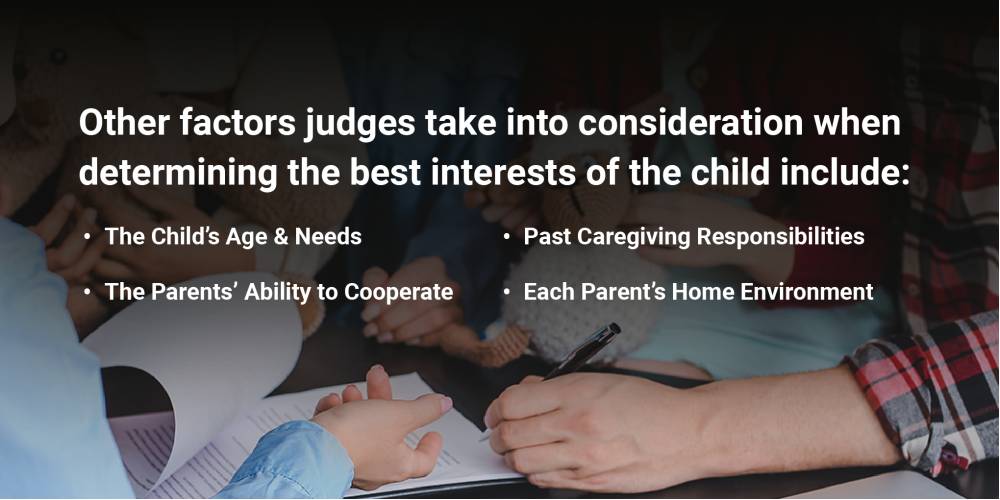Child Custody Schedules By Age in Illinois
 Parents navigating divorce or separation in Wheaton or elsewhere in DuPage County are often most concerned about how much time they will have with their children. In Illinois, there is no "standard" custody schedule. Instead, courts and attorneys focus on crafting a parenting time plan that fits the child’s age, developmental stage, and emotional needs.
Parents navigating divorce or separation in Wheaton or elsewhere in DuPage County are often most concerned about how much time they will have with their children. In Illinois, there is no "standard" custody schedule. Instead, courts and attorneys focus on crafting a parenting time plan that fits the child’s age, developmental stage, and emotional needs.
Goostree Law Group has decades of combined experience serving Illinois families, and we understand that custody arrangements are not simply about dividing days on a calendar; they are about helping children thrive after a major life transition.
We are deeply involved in community service and pro bono efforts, and that commitment to people is reflected in how we approach each case.
Illinois Parenting Time Law and the Best Interests Standard
Under the Illinois Marriage and Dissolution of Marriage Act, child custody is formally called "the allocation of parental responsibilities," and parenting time refers to the physical time each parent spends with the child. Judges do not begin with a default schedule. Instead, they consider what is in the best interests of the child based on a long list of statutory factors. One of the most important of these is the child’s age.
Other factors include the child’s needs, the parents’ ability to cooperate, past caregiving responsibilities, each parent’s home environment, and sometimes the child’s preferences if they are mature enough to express them. Every schedule must be tailored to reflect the realities of the child’s life and the family’s structure.

Custody Schedules for Infants and Toddlers (Ages Zero to Three)
Children in this age group need frequent contact with both parents, but extended separations from a primary caregiver can be emotionally destabilizing. Infants, especially, cannot conceptualize time or anticipate future visits. As a result, courts typically support shorter, more frequent visits with the non-primary parent rather than long overnight stretches.
Parenting plans for babies often begin with several daytime visits per week and then gradually incorporate overnight visits once the child is older and better able to transition between homes. If one parent has never cared for the child independently, courts may start with shorter parenting time and increase it as comfort and skills grow. Consistency, stability, and responsiveness to the child’s cues are essential during this stage.
Custody Schedules for Preschoolers (Ages Three to Five)
Preschoolers have stronger memory and attachment patterns than infants, but they still need predictability and routine. Children in this age group often begin overnight visits with both parents on a consistent weekly schedule.
For some families, alternating weekends with one or two midweek visits works well. Others may opt for a repeating two-day or three-day rotation. What matters most is that the child is not shuttled back and forth unpredictably or made to feel like they live out of a suitcase. Clear communication and preparation help children at this age transition more smoothly between homes.
Custody Schedules for Elementary-Aged Children (Ages Six to 12)
As children move into elementary school, they are better able to adapt to a wider range of schedules. Courts are more likely to approve equal time-sharing arrangements at this age, especially if both parents live nearby and communicate effectively. Week-on, week-off plans are increasingly common for school-aged children.
However, parents should also consider academic needs, extracurricular activities, and time with peers. Children in this age group need space to develop their own sense of routine and social life, and that can be disrupted by a custody plan that is either too rigid or too inconsistent.
Custody Schedules for Teenagers (Ages 13 to 18)
Teenagers are typically given more say in where they live and how they divide their time. Judges will still issue a parenting time schedule, but they often give substantial weight to the teen’s preferences, school schedule, and emotional needs. Teenagers may choose to spend longer stretches of time with one parent or alternate based on activities and friendships.
What works for one teen may not work for another. Some prefer predictability, while others want the flexibility to manage their time as they grow more independent. While teenagers may seem capable of handling the logistics on their own, parental guidance and structure are still important, especially during a family transition.
Special Custody Considerations and Modifying a Custody Schedule
Regardless of the child’s age, parenting plans must reflect the unique realities of the family. In some cases, a child may have special needs, a medical condition, or a strong attachment to a particular caregiver that justifies a more customized plan. Similarly, parents’ work schedules, travel demands, or mental health challenges may require creative scheduling.
Illinois courts allow parents to return to court and ask for a change to the parenting time schedule if there is a major change in circumstances. That change could be one parent moving, a change in the child’s school or activities, or even a developmental shift that makes the current schedule less appropriate. Our attorneys help parents build parenting plans that can evolve with the child while minimizing the need for costly, repeated litigation.
Goostree Law Group Helps Parents Build Age-Appropriate Parenting Plans
Our firm takes a collaborative, child-centered approach to custody and parenting time. We work with mediators, parenting coordinators, and co-parenting counselors when needed, always with the goal of creating an arrangement that supports your child’s growth and development.
Parents often come to us with deeply personal questions: Will my child be okay without me every night? What happens if my child refuses to go with the other parent? How do I handle transitions at school or daycare? These concerns are valid, and we take them seriously. We are not just lawyers; we strive to be counselors and advocates who understand how the law intersects with the emotional needs of children and families. Together, we help clients develop parenting plans that address today’s needs while allowing room for tomorrow’s changes.
Contact a Wheaton, IL Child Custody Attorney
If you are trying to build a parenting plan that works for your child’s age and stage of development, speak with a DuPage County, IL divorce lawyer at Goostree Law Group. Our team brings decades of experience and a deep community commitment to every case. We offer free consultations and are here to help your family move forward with confidence and compassion. Call 630-584-4800 now.












